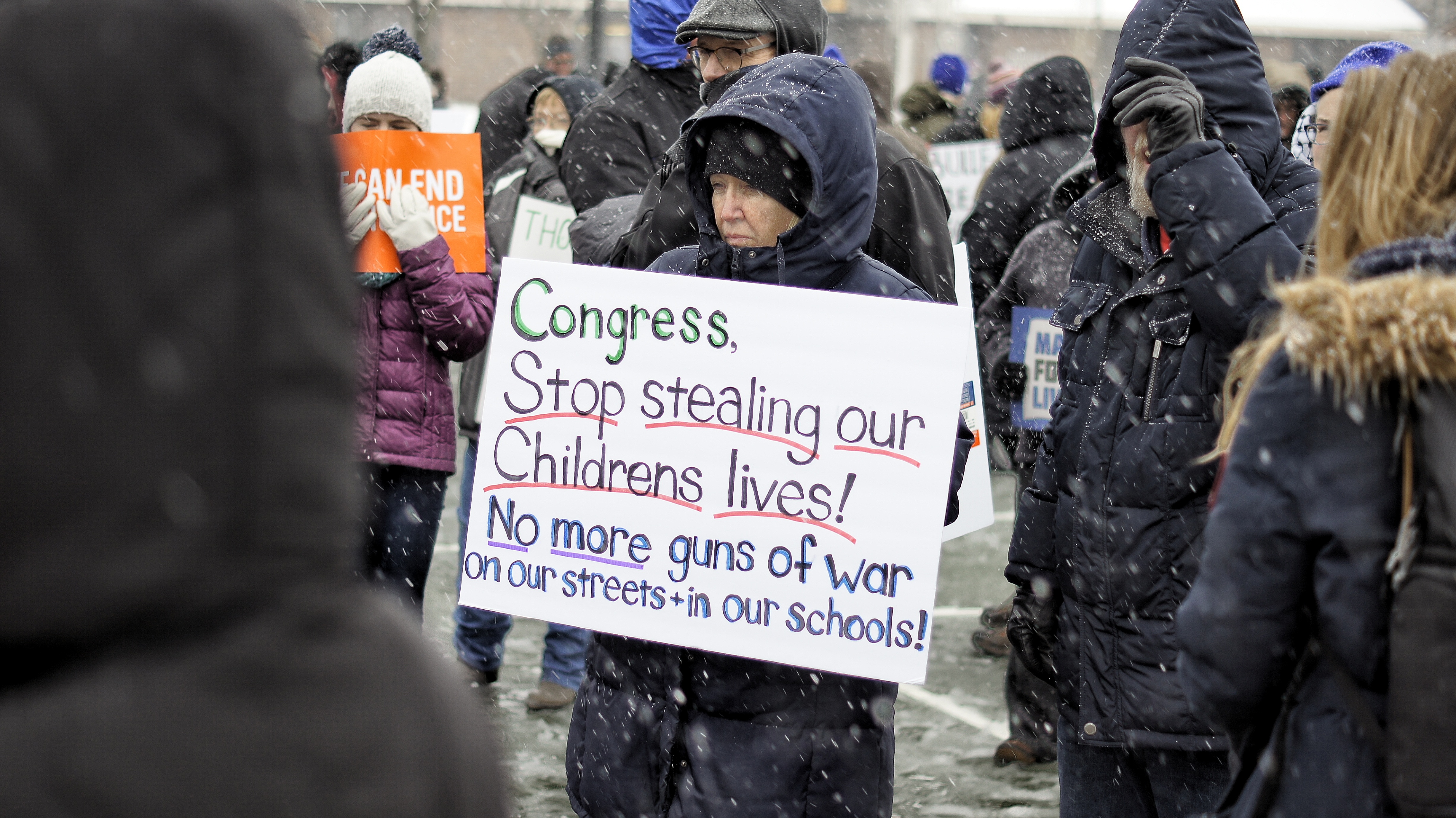Jonathan Metzl, MD, PhD, is a busy man these days.
Metzl is a Professor and Director of the Center for Medicine, Health, and Society at Vanderbilt University, a psychiatrist, and the Research Director of the Safe Tennessee Project, a non-partisan, volunteer-based organization that is concerned with gun-related injuries and fatalities in America and in Tennessee.
In describing his work on his website, Metzl states:
Being a gun violence expert, a professor, and a psychiatrist is a unique combination that allows me to speak and write about gun violence in America, and in particular to address stereotypes that link guns with race or mental illness, or that blame mental illness for mass shootings and other gun crimes.
As he is in such high demand, I literally caught up with Metzl first on the train, and then at the airport before his next flight.
With only 11 minutes between checking in for his flight and making his way to his departure gate, we discussed the March For Our Lives Movement (MFOL), the intersections of race, protests and gun violence, the Safer Tennessee Project, and more as a preview for Metzl’s upcoming visit to UIUC on Thursday, March 29.
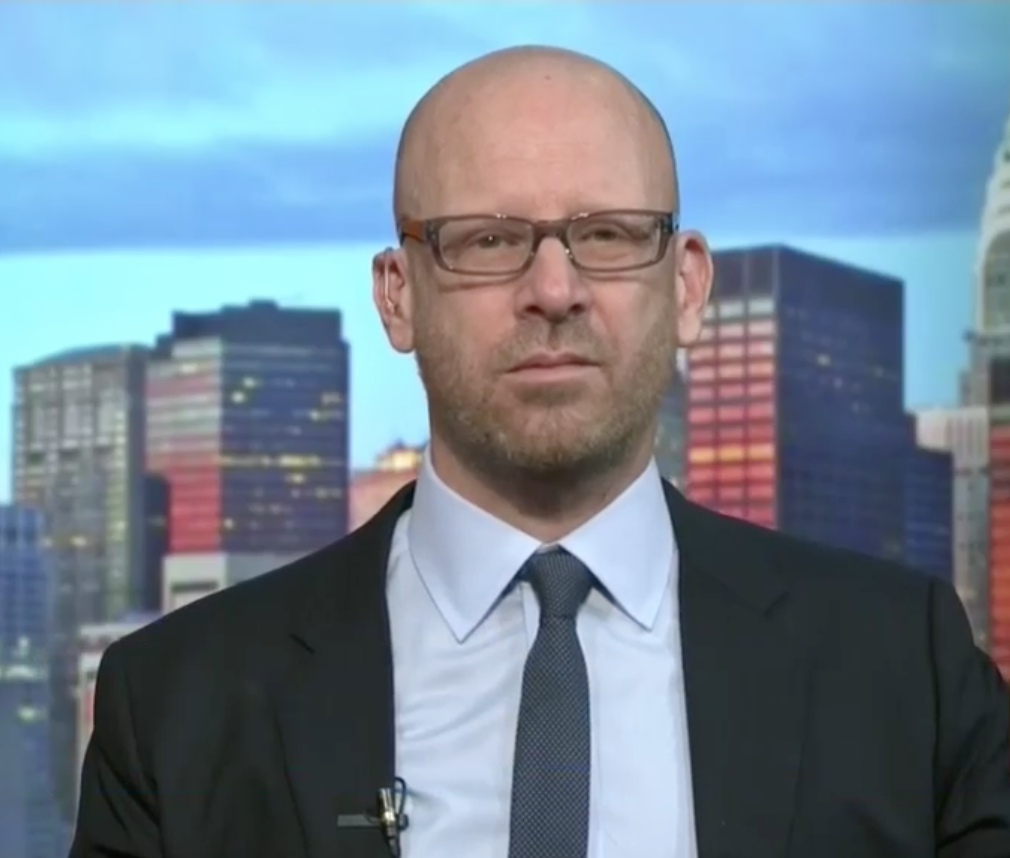 Smile Politely: Well I thank you again for finding some time to talk with me during this amazingly busy time for you.
Smile Politely: Well I thank you again for finding some time to talk with me during this amazingly busy time for you.
Jonathan Metzl: Yes, I just find myself racing through airports all the time. It’s crazy. I was on Fox News the other day and things have just been insanely busy since then. Will you be at the talk on Thursday?
SP: Yes, and really looking forward to your remarks.
Metzl: Perfect.
SP: So, in this moment of continued gun violence, bomb threats, this historic March For Our Lives rally, I thought it would be great to talk with you about some of these issues.
Metzl: Absolutely. That sounds great.
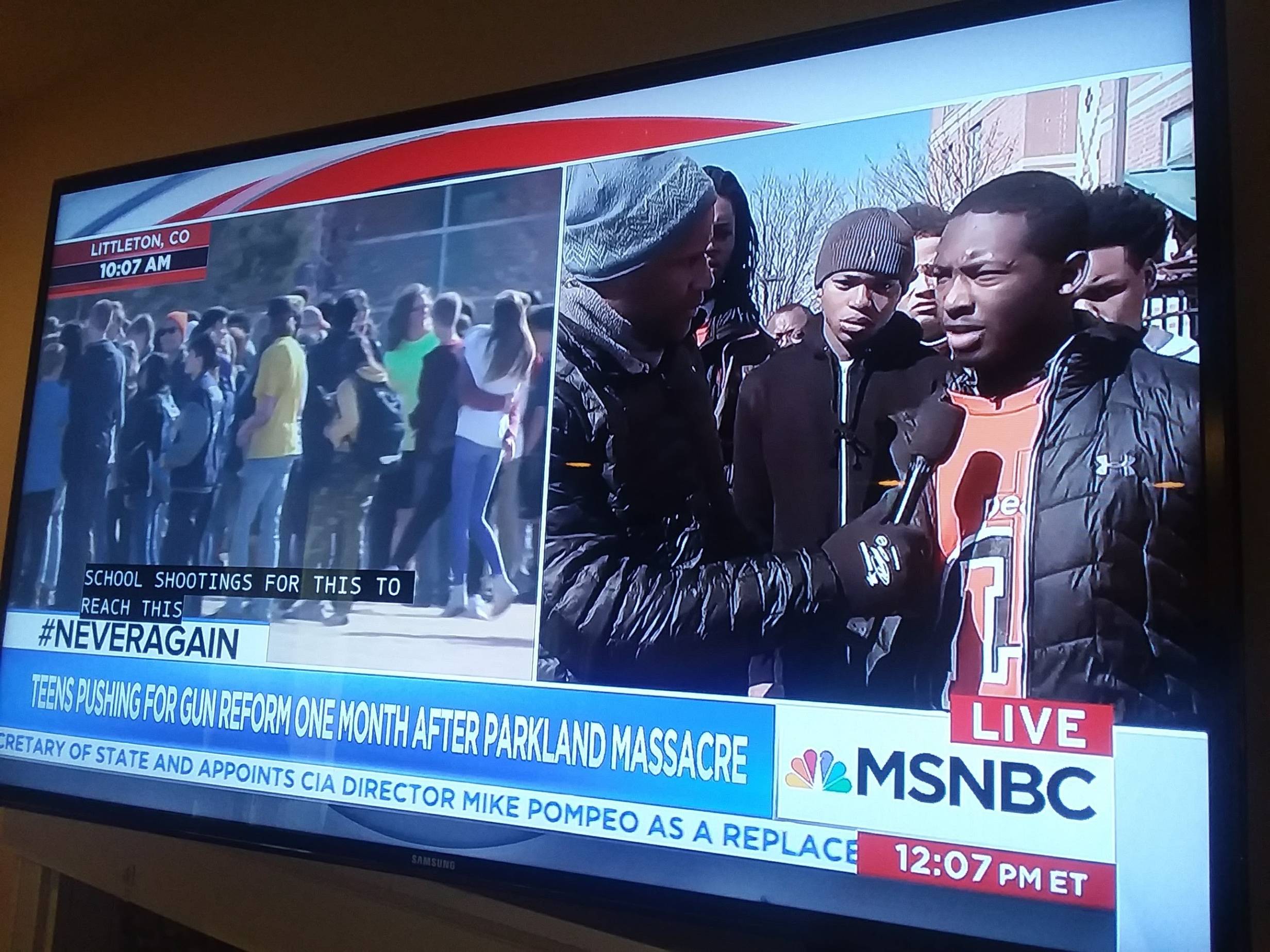
SP: What was your initial response to the March For Our Lives this past weekend?
Metzl: I never thought I would see this in my lifetime. It was just remarkable. I think the students have done what people of our generation have not been able to do in decades. So, I think it’s amazing.
SP: Great. And you are also seeing this kind of energy on your campus as well, as far as students being mobilized and inspired?
Metzl: I am and I think they are focusing on the right issues, which is nice also. I think one of the best parts is that the NRA is trying to coopt their narrative, and lead them in a different direction, but the students are not having it — which I think is great.
SP: I am also excited about this as well—particularly as folk who live and work on  campuses and teach related issues to see young people motivated in this way. And yet —at the same time — as an African American woman who was born and raised on the South Side of Chicago, I can’t help but be struck by the difference.
campuses and teach related issues to see young people motivated in this way. And yet —at the same time — as an African American woman who was born and raised on the South Side of Chicago, I can’t help but be struck by the difference.
Metzl: Of course.
SP: The difference between the countless young people who have been killed on Chicago’s South Side, in addition to the array of shootings in Baltimore, Florida, Ohio, Missouri, South Carolina, Milwaukee, et cetera.
So, the young people of the MFOL movement seem to understand the importance of reaching across class, geography and race to be able to share their experiences.
Metzl: Right.
SP: But why doesn’t the media behave in the same fashion?
Metzl: You know, I totally agree with you. It is part of a bigger cultural story about whose protests matter and who gets listened to. So, I certainly agree with that. You know I am seeing some headlines about the fact that we have to listen to Parkland, but we also have to listen to Ferguson.
But, what we see is that a lot of policies like this, or gay marriage; it just doesn’t hit people until they see it in their own families, which is unfortunate that we are not completely empathetic to the suffering of other people.
But what I think is great about the student protesters is that they are using this divide to argue for a platform that has really broad implications. I saw an article in The New Yorker today talking about how inclusive the student message is, how inclusive the coalition is.
So, I have to say that I feel more optimism about this than any of the other movements I’ve seen in the past.
SP: The other question I had for you stemmed from your articles and your insistence that we cannot constantly make automatic and uninformed connections between mental illness and mass shootings.
So as someone who is researching, writing, and talking about these issues constantly, why don’t we talk about hate more? Why don’t we talk about hate, intra-group hate, hate crimes, and domestic extremism as being real features of mass shootings or gun-involved incidents?
Metzl: I totally get you. One of the ironic things I have argued a lot recently is that when [we] associate these incidents with mental illness, that association allows us to throw up our hands and not take action because the problem is in somebody’s else’s brain.
SP: Right.
Metzel: But if we call it “murder” or if we call this “terrorism,” then there are tons of things we can do. There is a whole system set up for these kinds of incidents. I completely agree you can call it “hate,” you can call it “terrorism.” Right after the Florida shooting, for example, President Trump said, “We’re going to lock people up in loony bins,” and all this kind of stuff.
But no, I am very constantly surprised that we don’t talk more about hate or that we don’t call these mass shootings forms of white terrorism.
SP: Right. That’s right. In Austin, just last week, we see the unwillingness to use the language of terrorism to address this issue. And even locally, here in Central Illinois, young people from some of our surrounding communities are increasingly calling bomb threats into their schools.
Metzl: Right.
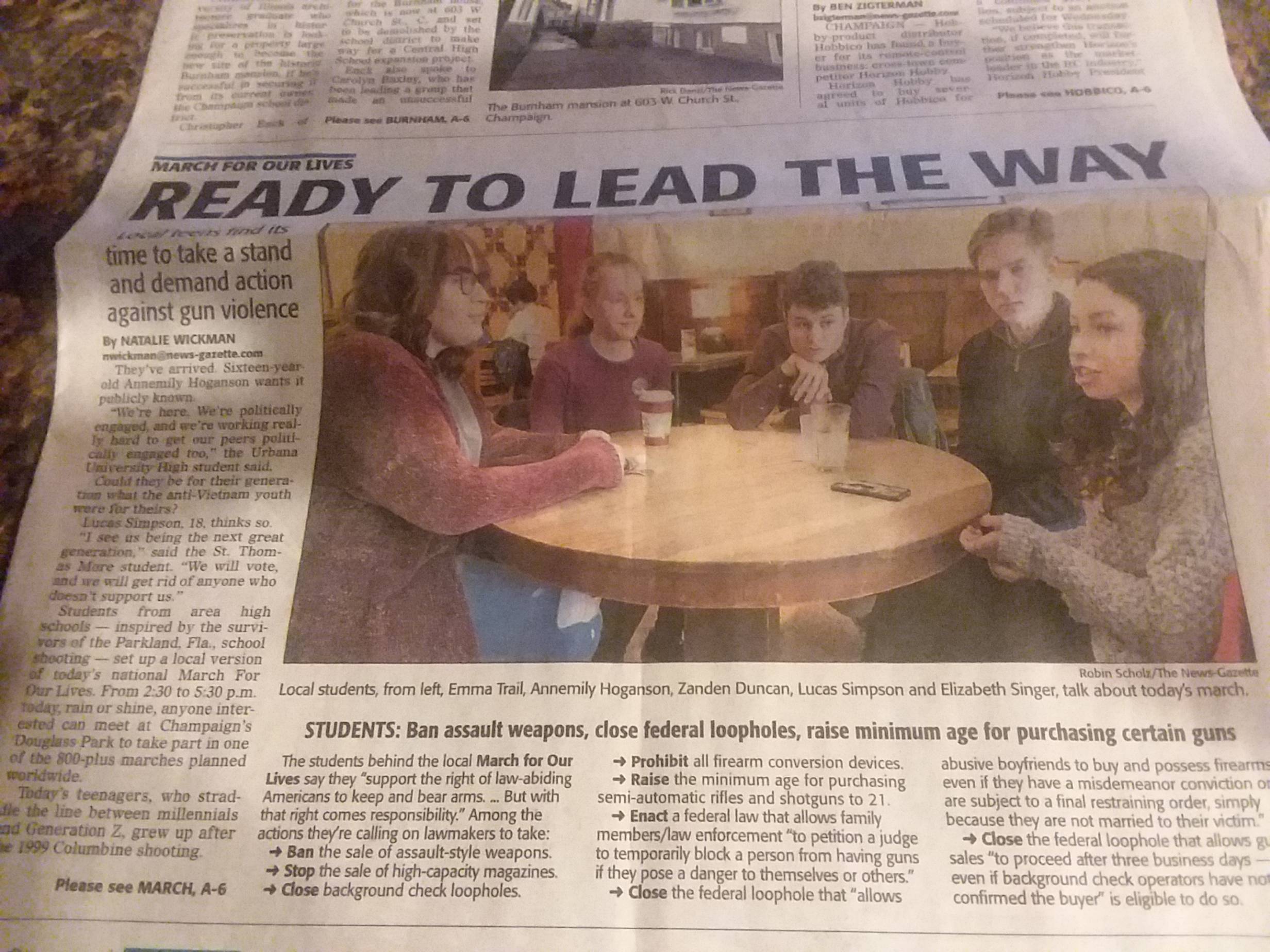 SP: But we don’t address the issue hardly at all — except to mention that it happened on the local news. This issue of white terrorism is something that we just won’t give voice to.
SP: But we don’t address the issue hardly at all — except to mention that it happened on the local news. This issue of white terrorism is something that we just won’t give voice to.
Furthermore, we don’t give voice to white terrorism, but we as a nation are celebrating a predominantly white-led youth movement around gun violence reduction.
Metzl: Right, right.
SP: I’ve been thinking about this issue of white terror, the Parkland youth and then some of the recent the backlash to Black Panther, and it just seems to me that there is a craving in American culture for white s/heroes. So I wonder if that craving is what some of the silence around white terrorism is about?
Metzl: I don’t know if you have seen my piece in The Washington Post called “When The Shooter Is White.”
SP: I have.
Metzl: But I completely agree with you. I really do. I think, though, one of the things to highlight here is that the students seem to be quite aware of how they are being privileged and they are consciously rejecting this narrative.
Yet, I hear you: if you are a protester in Ferguson and you have been living with something far more extreme than mass shootings…if you have been living with the everyday structural racism, you kind of have to just throw your hands up and say what is this movement going to do to stop the militarization of the police and the factors that may address that.
SP: Right.
Metzl: So in a way, I think the question of whose protests matter is deeply racialized, but I am 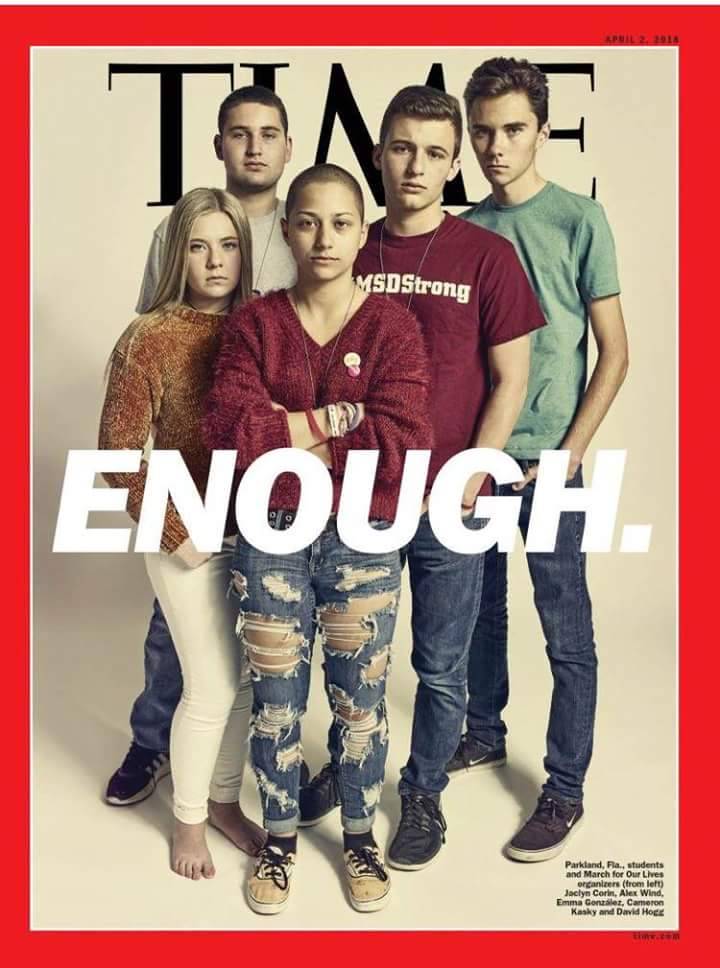 cautiously optimistic that this MFOL movement will have broad implications. But who knows, our society is so geared toward having that not happen. But, we’ll see.
cautiously optimistic that this MFOL movement will have broad implications. But who knows, our society is so geared toward having that not happen. But, we’ll see.
SP: The other concern I have — as an educator and a parent— is one area that the young people’s movement does not take into account explicitly is how we will address American masculinity in peril — beyond mental health measures.
It seems to me that — whether you are on Chicago’s South Side or Champaign-Urbana’s North Side, or from some small rural community in Arkansas, or other far-flung places across America — this gun violence crisis is about young American men deciding to resolving conflict by doing harm to themselves, each other, and us.
Metzl: Right.
SP: And we can’t completely legislate our way out of that. So, I am wondering why isn’t there a greater call, why aren’t their conferences, roundtables, think tanks, meetings, discussion group devoted to this issue?
Metzl: Let me just say there was recent article in Vox by Anna North about this exact point.
There have been some recent articles like that one calling for new models of masculinity. I thought she wrote a very strong piece about it. I think she has a pretty good take on this issue.
SP: Finally, I wanted to you to talk a bit about the Safe Tennessee Project. I wanted to hear about what the project is doing currently and what other communities might replicate from that initiative.
Metzl: The number of things we are doing now is remarkable. And it is the result of one woman, Beth Roth, who is just a tireless advocate for this stuff. We have been involved at the legislative level for a while. That’s now picking up steam. We are involved in the student movement, organizing students. And I think the whole point is about keeping the pressure on. You know, keeping things going. There is so much energy right now. We even need additional personnel.
SP: Wow!
Metzl: The Safer Tennessee Project is certainly an organization started by one person with no resources that is really becoming a powerful force. So, from our experience, you just need tireless advocacy on this issue.
+++
Jonathan Metzl will be presenting to the UIUC campus and community on Thursday, March 29th, 2018 from 4 to 5:30 p.m. in the Levis Faculty Center (Room 300) at 919 West Illinois Street, Urbana.
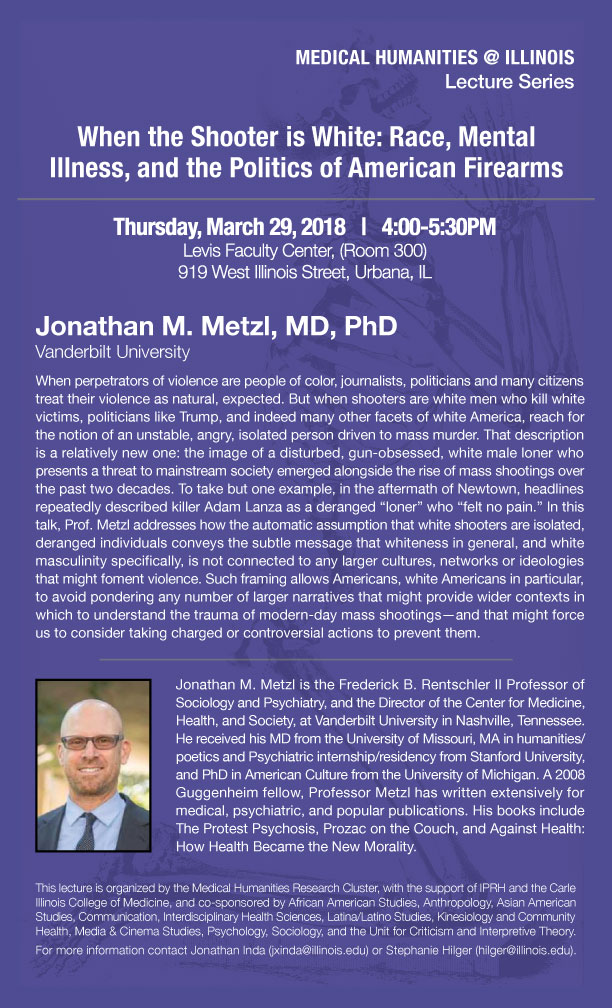
Nicole Anderson Cobb, PhD, is a four-time UIUC alum and a new staff writer for Smile Politely magazine.
Photos by Nicole Anderson Cobb, Kwamé Nyerere Thomas, and from Facebook.








